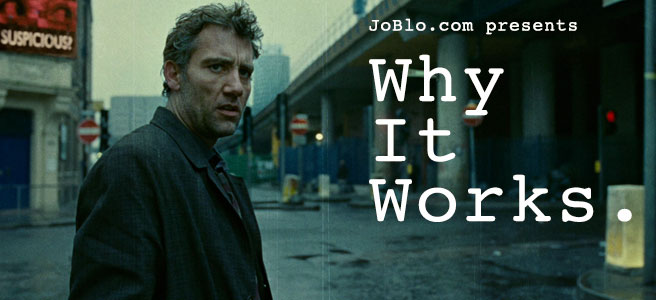 Why It Works is an ongoing column which breaks down some of the most acclaimed films in history and explores what makes them so iconic, groundbreaking, and memorable.
Why It Works is an ongoing column which breaks down some of the most acclaimed films in history and explores what makes them so iconic, groundbreaking, and memorable.
****SPOILERS AHEAD****
The year is 2027, humans have lost the ability to procreate, and the world has gone to shit. The United Kingdom, while one of the few functioning societies left, has become a volatile police state full of desperate refugees, corrupt officials, militant activists, and people who will stop at nothing to get ahead. Alfonso Cuarón's CHILDREN OF MEN paints a dark tale of the future, where even our protagonist seems as grim as the political landscape- and yet Cuarón and company fill the cracks with just enough light and traces of hope to keep us hanging on until the end. Here's why it works:
WHY WE LIKE THE CHARACTERS:
At first glance, Theo Faron is a fairly lackluster character, unaffected by the crumbling world around him and showing little emotion throughout. We eventually see glimpses of life as he interacts with the film's more vibrant characters, but initially Theo is little more than a set of eyes through which to view the world. Once we learn of his activist background and he discovers the secret of Kee's pregnancy, however, we find Theo to be selfless and willing to give his own life for the future of humanity. Theo's accomplices offer a nice contrast to his stoicism, from the eccentric Jasper and gone-too-soon dissident Julian to the maternal Miriam and the fragile but determined Kee. Even the film's less noble characters offer a bit of levity and come across as friendlies, that is until the double-crossing activist Luke and the vicious Syd show just how frail trust can be in the world of tomorrow.
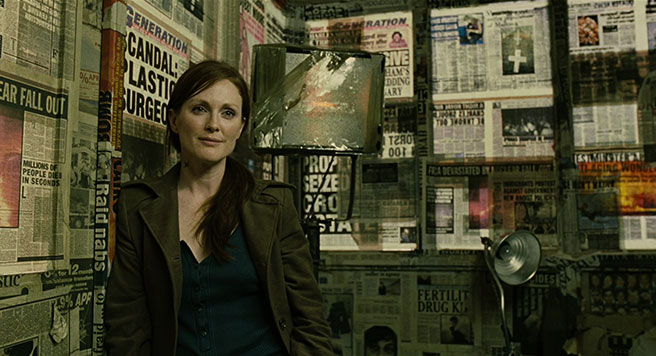 Cuarón said of Julianne Moore, "it was so important to get somebody who would have first of all the credibility of leadership, intelligence, independence…"
Cuarón said of Julianne Moore, "it was so important to get somebody who would have first of all the credibility of leadership, intelligence, independence…"
WHY WE CARE:
One of the core rules of writing any story is to make sure the stakes are high. We need to know that the consequence of the protagonists not achieving their goal is dire. In the case of CHILDREN OF MEN, the future of the entire human race rests on getting Kee and her baby to safety, so… check. This is a very big picture concept, though, so we need something more visceral and immediate to keep us going. First and foremost, CHILDREN OF MEN never stops moving. There are much needed moments of respite where we can take a breath and spend time with the characters, but otherwise locations change, characters die unexpectedly, and enemies are in pursuit at every turn. While the script takes care of this on its own, Cuarón takes it up a notch by employing long takes at the most critical moments. Instead of cutting like crazy as per the action movie standard, we are instead forced to stay with the characters as they narrowly avoid danger. Yes we want the first baby in 18 years to get to safety so that humankind might have a chance at survival, but right now we just need Theo to get that bloody car started.
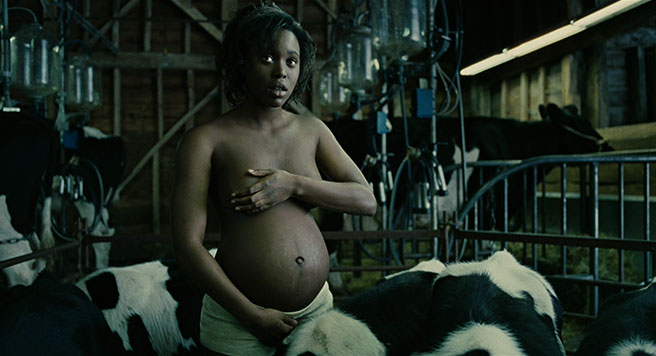 "I'm scared… please help me."
"I'm scared… please help me."
WHY WE'RE SATISFIED:
Against all odds, Theo and Kee escape the madness. The first moment of relief comes when the army and the refugees cease fire for a brief moment to let them pass and stare in awe at Kee's baby. Taking a boat to a meeting place where the ship Tomorrow is set to rescue them, the pair await help, unsure if it will even come. We quickly discover that Theo has been mortally wounded, but it's clear he doesn't mind in the slightest. He found something worth dying for and couldn't be more at peace watching Kee cradle her beautiful baby girl- especially now that she decided to call her Dylan and not Froley or Bazooka. As Theo succumbs to his wounds and the Tomorrow arrives, Kee assures Dylan they are safe- as sounds of children at play lead us into the end credits.
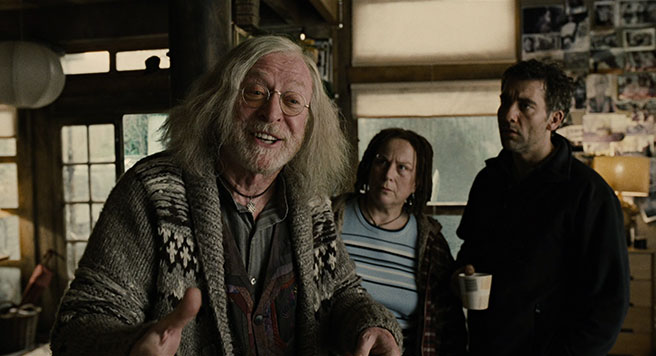 Fun fact: Michael Caine based his performance on time he spent with John Lennon.
Fun fact: Michael Caine based his performance on time he spent with John Lennon.
WHY WE REMEMBER:
Perhaps the most thrilling aspect of Alfonso Cuarón's style is how non-invasive it is. Cuarón stated his intention with this film was to shoot it more like a documentary than a sci-fi action flick. Even in HARRY POTTER AND THE PRISONER OF AZKABAN, the director would often show magic as incidental to whatever was going on in the foreground rather than relying on spectacle to make the scene. CHILDREN OF MEN does this with the infamous long takes as well as with the film's occasional futuristic tech and the state of the world in general. The main focus of the film feels gritty and almost intimate while surrounding it is an elegant tapestry of impressive filmmaking and immersive storytelling. The original novel by P. D. James was changed drastically by Cuarón and the film's many writers, but at its heart it gives us a compelling dystopian world unlike many we've seen in fiction before. Clive Owen, Michael Caine, Julianne Moore, Clare-Hope Ashitey, Chiwetel Ejiofor, Pam Ferris, Charlie Hunnam, Peter Mullan, and Danny Huston bring each character to life in a dismal world, with cinematographer Emmanuel Lubezki and editors Alex Rodríguez and Cuarón himself giving us a stunning film that feels at once organic, cold, bleak, and exciting. While it didn't make a ton of waves at the time of its release, CHILDREN OF MEN went on to appear on several end-of-decade lists and continues to be as revelant and important today as it was back in 2027.
Thoughts? What else worked for you? What didn't? Strike back below!
If you have any movies you'd like to see put under the microscope, let us know below or send me an email at [email protected].


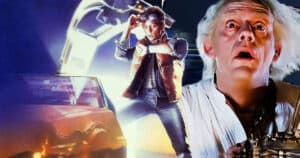
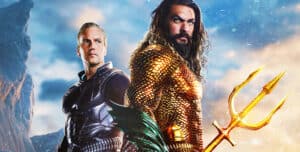
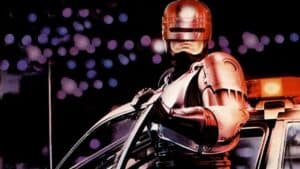
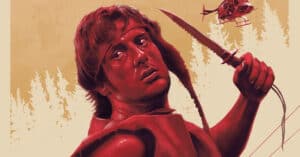
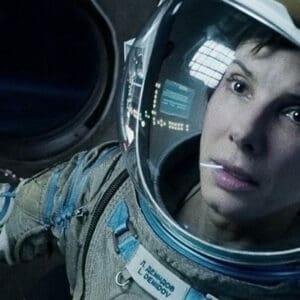
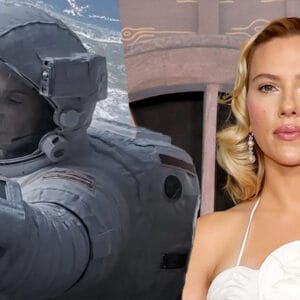
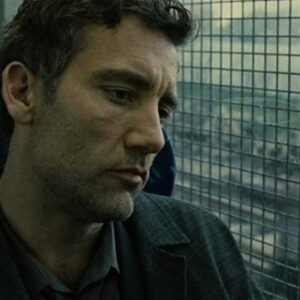
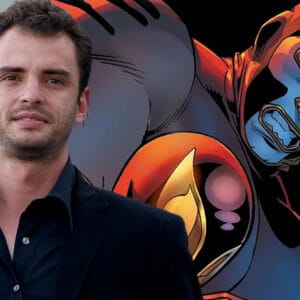
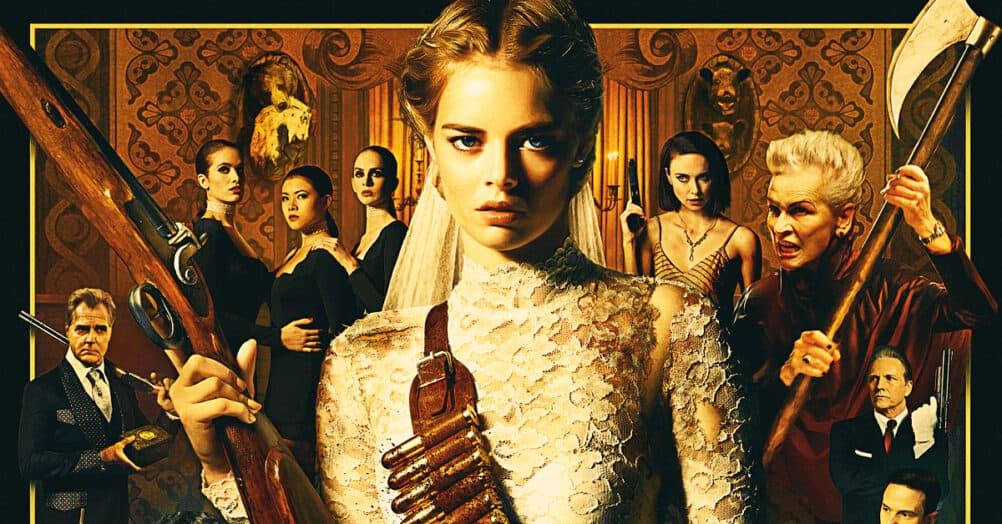
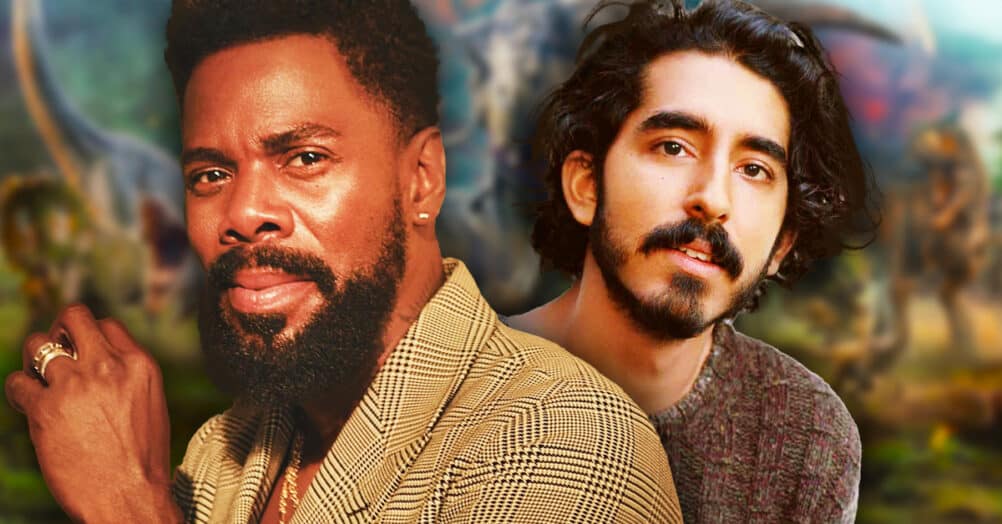
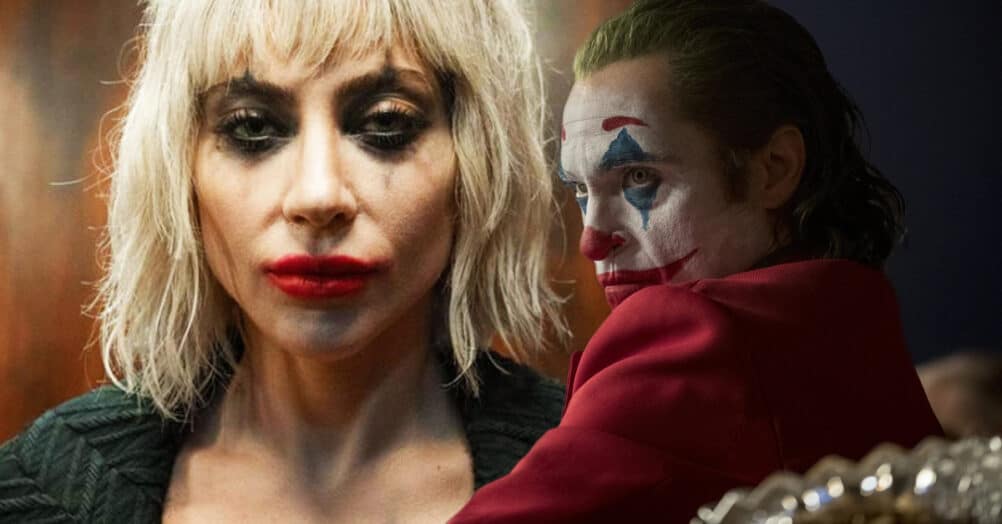
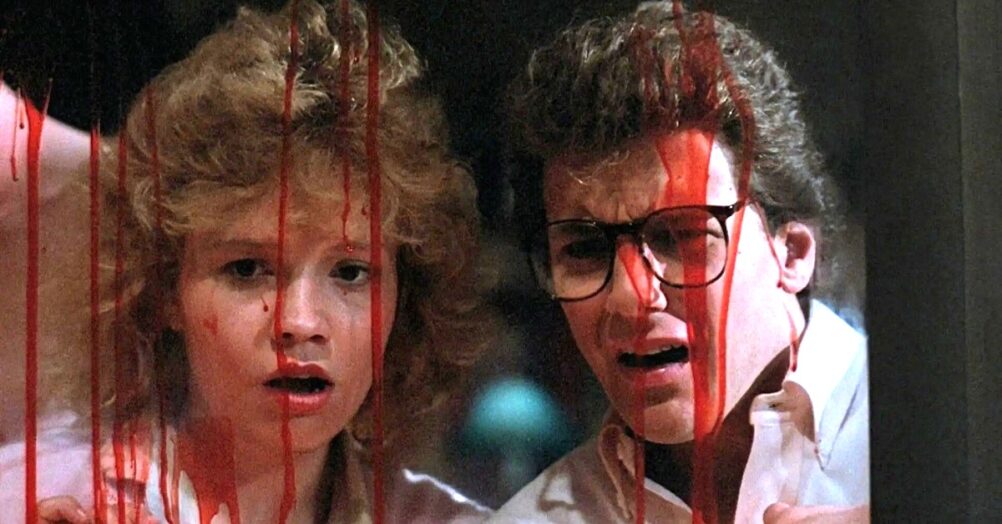
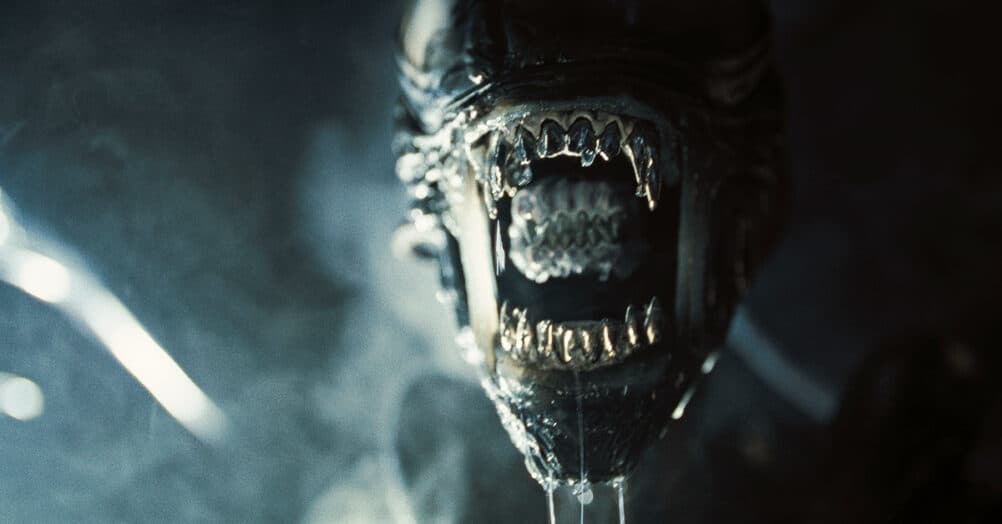
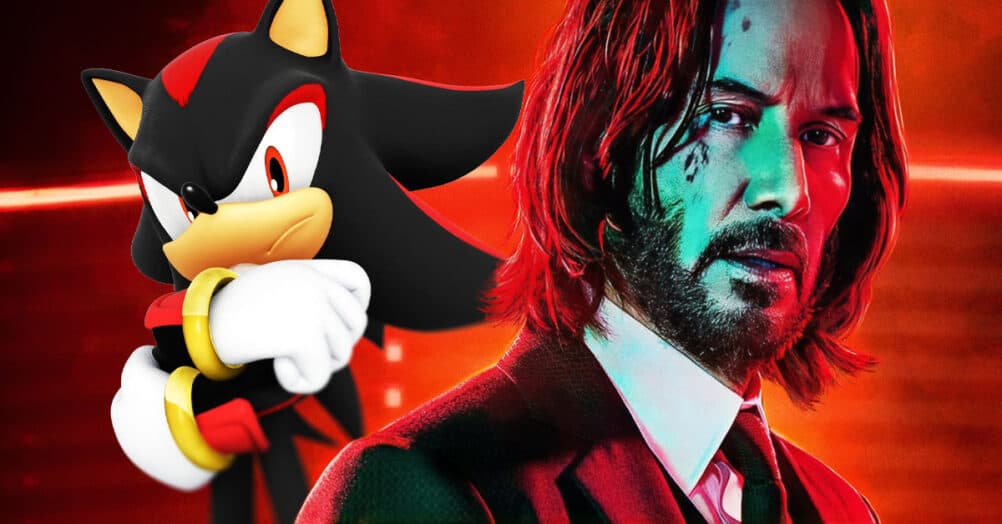
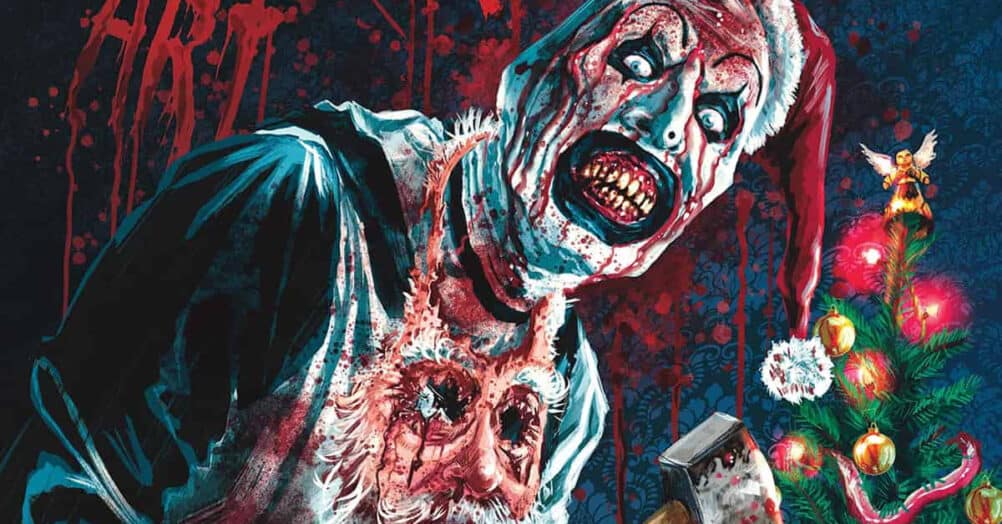
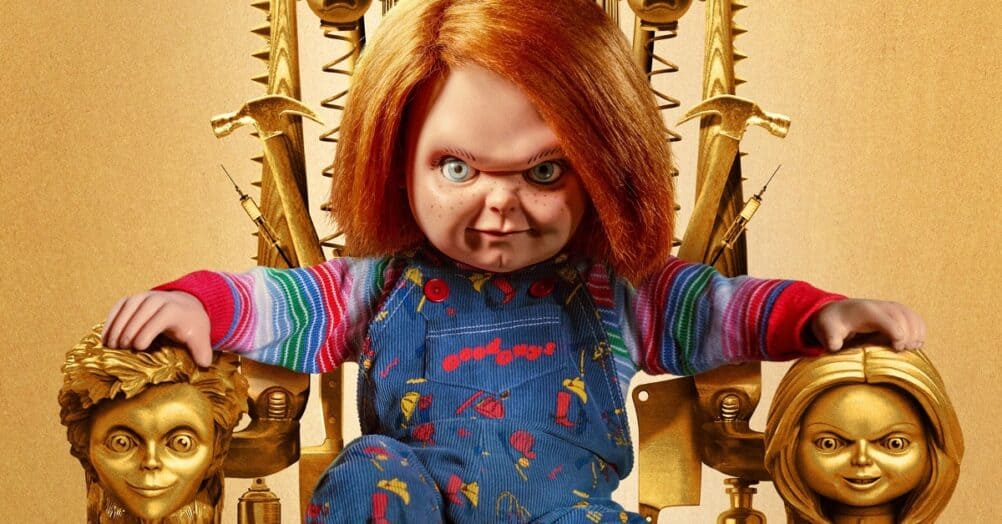

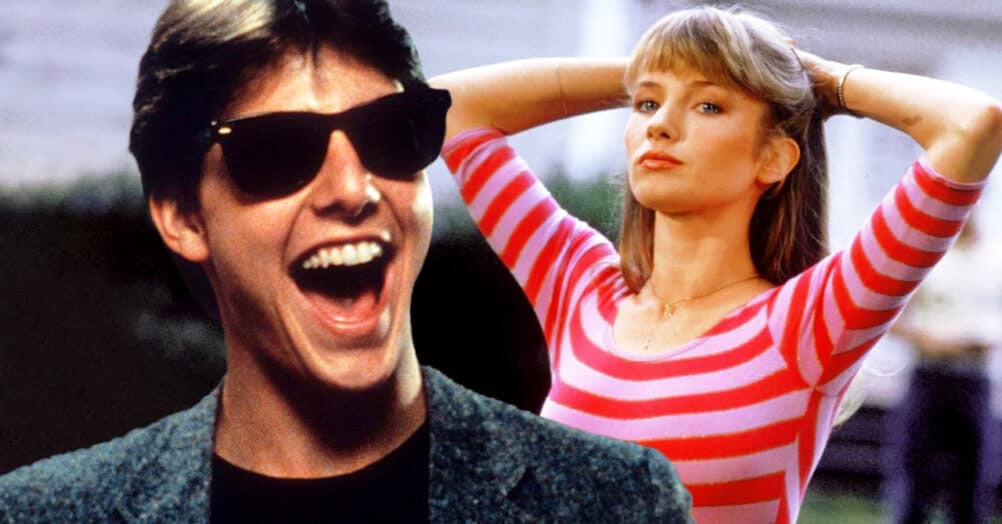
Follow the JOBLO MOVIE NETWORK
Follow us on YOUTUBE
Follow ARROW IN THE HEAD
Follow AITH on YOUTUBE